May 21, 2025 | 09:41 GMT +7
May 21, 2025 | 09:41 GMT +7
Hotline: 0913.378.918
May 21, 2025 | 09:41 GMT +7
Hotline: 0913.378.918
During a February 21 working session between a delegation from the Ministry of Agriculture and Rural Development and De Heus Group (Netherlands) to discuss the development of solutions for exporting chicken meat, chicken meat processed products, and poultry eggs to Islamic countries (Halal market), the Deputy Director of the Livestock Department, Mr. Tong Xuan Chinh, disclosed that the current global Muslim population exceeds 2 billion. Their daily food consumption must be Halal-certified (which literally translates to "lawful" or "permitted" in Arabic). Licenses to operate or export products for Muslims will be granted to businesses that satisfy all requirements, adhere to the standards, values, and religious laws of Islam as prescribed by the Quran and Shariah law in their production processes.
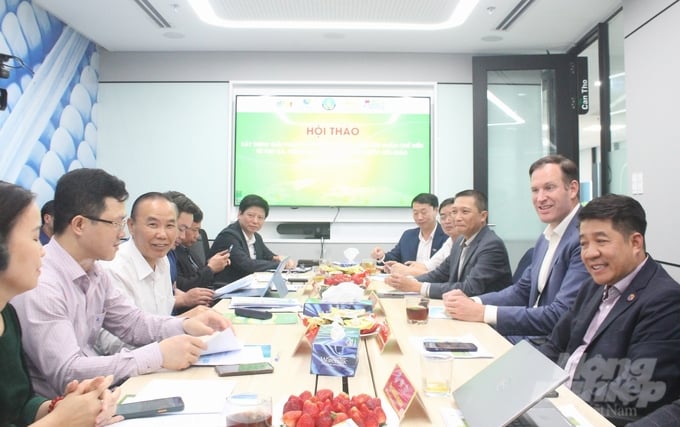
Halal is a market full of potential for Vietnam to export chicken meat products, processed products from chicken meat, and poultry eggs. Photo: Trung Quan.
Statistics indicate that Muslims spend approximately 2 trillion USD annually on average to purchase these categories of food. Approximately 860 million Muslims reside in Southeast Asia alone, and they annually spend approximately 460 billion USD on Halal-certified culinary products. Hence, it is evident that Vietnam has the capacity to export chicken flesh, processed chicken meat products, and poultry eggs to this market. However, at the moment, neither official Vietnamese products nor state management standards for Halal meat are certified as Halal.
Additionally, Mr. Chinh remarked that regard to the Halal market, Vietnamese exporting companies, including De Heus, must be mindful of the following particulars: Halal product certification is predominantly carried out by state management agencies in Southeast Asian countries, whereas private organizations are responsible for this function in Vietnam. It is imperative that units rigorously adhere to Halal standards throughout the entirety of the livestock process. This includes verifying that breeding stock has been processed in accordance with Halal protocols; poultry, starting from one day old until slaughter, must be fed feed that complies with Halal standards; and slaughter procedures must align with Halal regulations, with the most notable being the mandatory observance of prayer prior to slaughter. In addition to supervision and execution by Muslims, this duty necessitates adherence to Halal guidelines and standards during distribution and packaging.
According to Gabor Fluit, the General Director of De Heus Asia, it is advisable to adopt strategies that encompass both short-term and long-term objectives when targeting the Halal market. Certain Muslim nations have a short-term demand for imported whole chickens, which provides an excellent opportunity for Vietnamese chicken products to penetrate the market and establish the brand gradually. At its present capacity, De Heus is capable of completely fulfilling the demands of these markets. Gradually and over an extended period of time, each procedure must be refined in order to attain Halal certification.

According to Deputy Minister Phung Duc Tien of the Ministry of Agriculture and Rural Development, the ministry will create the most favorable conditions and provide support to ensure the successful export of products to the Halal market. Photo: Trung Quan.
In 2023, the Veterinary Department, in conjunction with the Departments of Agriculture and Rural Development of several provinces (Dong Nai, Ba Ria-Vung Tau, Binh Duong, Binh Phuoc, Lam Dong, Tay Ninh, Long An, and De Heus Co., Ltd.), signed an agreement to work together towards the establishment of a chicken production chain that is both safe and free from diseases. This collaboration will span from 2023 to 2028. In accordance with WOAH/OIE regulations, De Heus is therefore attempting to implement solutions that enhance disease-free procedures in the livestock chain.
The production chain for disease-free, safe poultry will be fully operational and approved by importing nations by December 2025. All poultry processing, slaughtering, and processing facilities will be HACCP, GlobalGAP, ISO 22000, and Halal-accredited to assure food and disease safety.
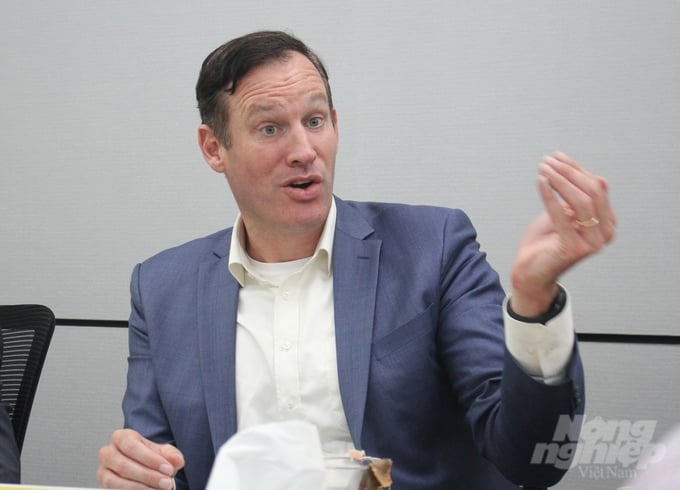
According to Mr. Gabor Fluit, General Director of De Heus Asia, De Heus is currently perfecting all processes to introduce its exported chicken meat products into the Halal market. Photo: Trung Quan.
Positively indications is the proactive pursuit of poultry meat supply from Vietnam by certain halal markets. De Heus' livestock and slaughter processes have been the subject of surveys and evaluations by numerous organizations in recent times. The outcomes have been highly satisfying as these organizations have demonstrated their willingness to cooperate and aid De Heus in streamlining procedures to expedite the introduction of products to the market.
Phung Duc Tien, the Deputy Minister of Agriculture and Rural Development, underscored the precise identification of the prerequisites and potential for Vietnamese poultry products to penetrate the Halal market. Therefore, in order to swiftly penetrate this challenging market, De Heus must establish close collaborations with state management agencies and specialized units of the Ministry of Agriculture and Rural Development (e.g., Department of Animal Health, Department of Livestock Production, International Cooperation Department). This will enable the company to gain access to and progressively enhance processes, thereby eliminating technical obstacles
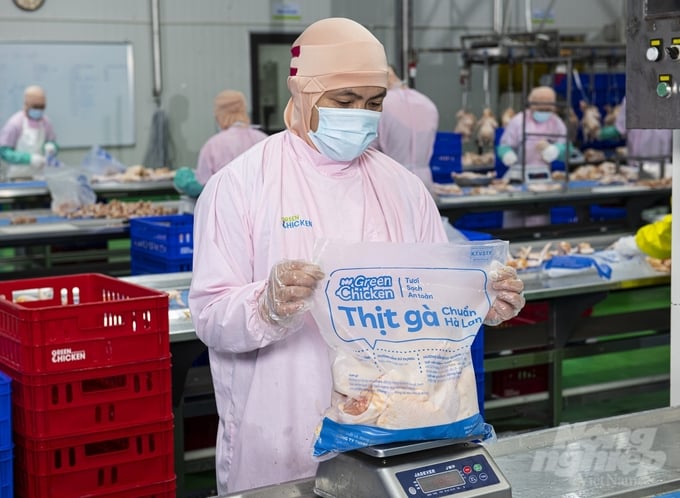
To enter the Halal market, the entire process from breeding stock, livestock farming facilities, feed, hygiene and disease prevention measures, slaughterhouses, packaging processes, etc., must be meticulously perfected according to requirements. Photo: Trung Quan.
In order to avail themselves of timely assistance from the specialized agencies of the Ministry of Agriculture and Rural Development, it is imperative that businesses establish precise deadlines for every task and piece of content. Furthermore, it is imperative that every stage of the operation, including breeding, agricultural facilities, feed, hygiene and disease prevention protocols, slaughterhouses, and packaging processes, be refined in strict adherence to Halal standards.
Translated by Linh Linh
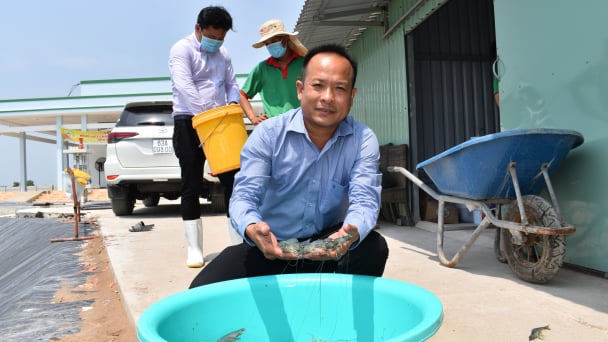
(VAN) One of the key factors for businesses to effectively take advantage of tariff preferences under these FTAs is the rules of origin.
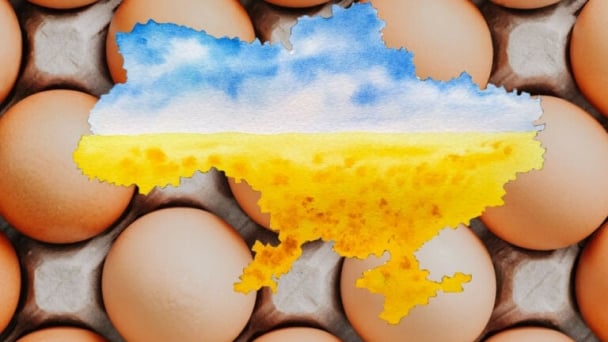
(VAN) Oliyar, a prominent Ukrainian oil and fat manufacturer, has revealed plans to build a farm for 2.3 million laying hens in the Lviv region. The additional production quantities promise to change the competitive landscape of the egg market of the Eastern Europe region.

(VAN) On May 15, Ministry of Agriculture and Environment of Vietnam hosted the 'Connecting Vietnam - Germany agricultural, forestry and fishery trade' seminar in Berlin, Germany.

(VAN) In the face of counterfeit and imitation products, Khanh Hoa Salanganes Nest Company hopes for the prompt completion of the legal framework, strict enforcement against violations, and protection of the bird’s nest brand.

(VAN) Japan's efforts to lower the price of rice through the release of its stockpile may finally be making some progress, albeit at a snail's pace.

(VAN) U.S. tariffs are not only a 'shock', but also an opportunity for Vietnamese businesses to renew their mindset toward comprehensive development.

(VAN) As Bac Giang lychee enters the harvest season, Minister Do Duc Duy expects that the fruit will contribute greatly to agricultural exports due to standardized production and deep processing.